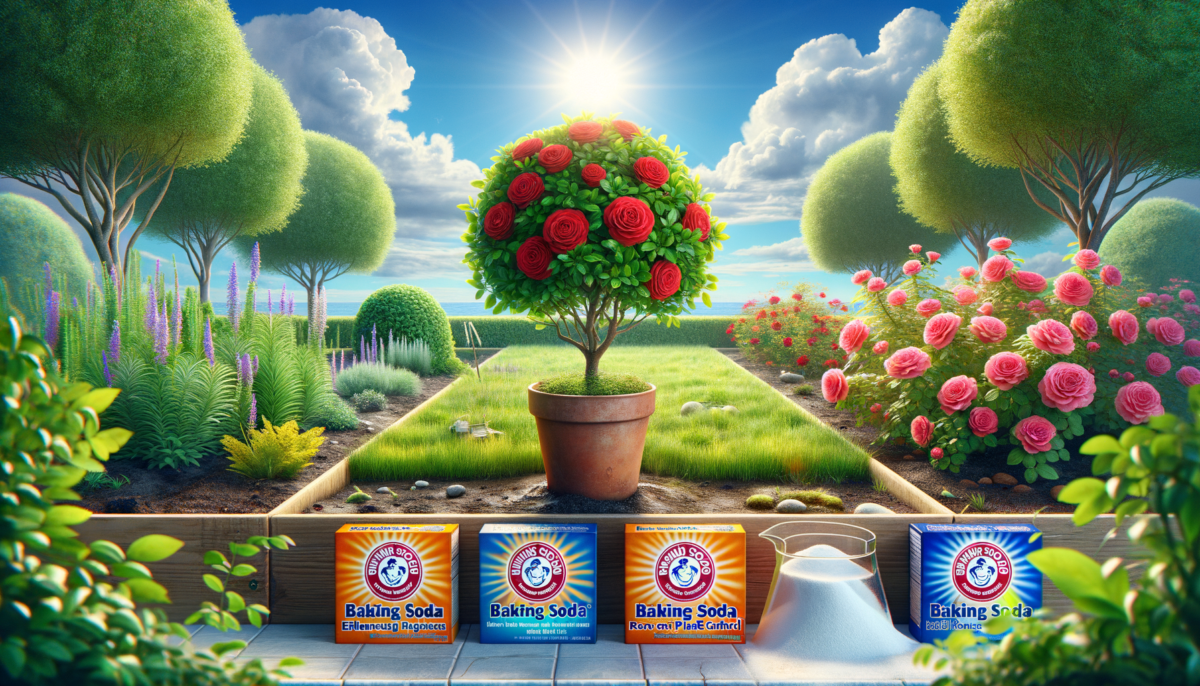Introduction to Baking Soda in Gardening
Baking soda, a common household item, is renowned for its versatility beyond the kitchen. In the realm of gardening, it offers a myriad of benefits that can enhance plant health, deter pests, and even improve soil quality. This article delves into the practical applications of baking soda in gardening, providing insights into how this humble compound can transform your green space into a thriving oasis.
Fungal Disease Prevention
One of the most valuable uses of baking soda in gardening is its ability to combat fungal diseases. Powdery mildew, a common affliction in gardens, can be effectively managed with a simple baking soda solution. By mixing one tablespoon of baking soda with a gallon of water and a few drops of liquid soap, gardeners can create a spray that, when applied to affected plants, helps to inhibit fungal growth. This method is particularly effective for plants like roses, cucumbers, and squash.
Regular application of this solution can prevent the spread of fungal spores, ensuring healthier plants. While not a cure-all, baking soda serves as a preventive measure that, when combined with good gardening practices, can significantly reduce the incidence of fungal diseases.
Pest Control
Baking soda can also act as a natural pest deterrent. When combined with other ingredients, it can help repel insects such as aphids and ants. A mixture of baking soda and flour, sprinkled around the base of plants, can deter pests by disrupting their feeding patterns. Additionally, a spray made from baking soda, water, and a touch of oil can be used to target soft-bodied insects without harming beneficial insects.
This eco-friendly approach to pest management not only protects your plants but also contributes to a more balanced garden ecosystem. By using baking soda, gardeners can reduce reliance on chemical pesticides, promoting a healthier environment for plants, pollinators, and humans alike.
Soil pH Adjustment
Soil pH plays a crucial role in plant health, influencing nutrient availability and overall growth. Baking soda can be used to raise the pH of acidic soils, making them more alkaline. This is particularly beneficial for plants that thrive in less acidic conditions, such as lavender and certain vegetables.
To adjust soil pH, gardeners can dissolve baking soda in water and apply it to the soil. However, it’s important to test soil pH before making adjustments, as excessive alkalinity can harm plants. By understanding the specific needs of your garden, baking soda can be a valuable tool in creating optimal growing conditions.
Conclusion: Embracing Baking Soda in the Garden
Incorporating baking soda into your gardening routine can yield numerous benefits, from disease prevention to pest control and soil enhancement. Its natural properties make it a safe and effective alternative to synthetic chemicals, aligning with sustainable gardening practices. By embracing baking soda, gardeners can foster a healthier, more resilient garden that thrives in harmony with nature.
